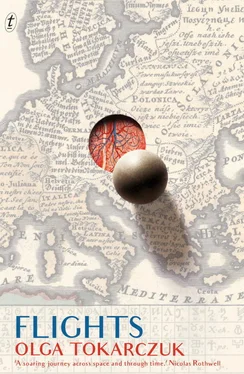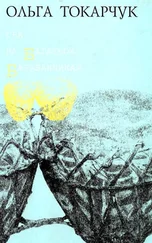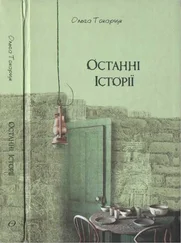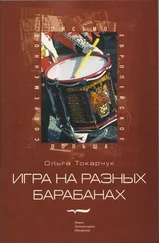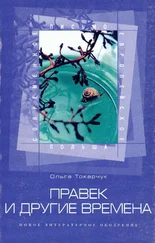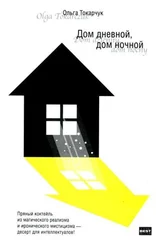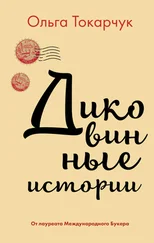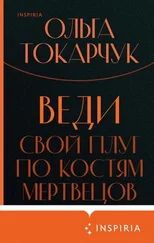He and Kampa – who brought him the specimen one morning – discovered something remarkable, on which Blau then worked for several months, in order to precisely understand the make-up and the workings of the conserving liquid. Namely, an arm. Male, powerful (the circumference of the biceps was 54 centimetres), 47 centimetres long, cut clean with the clear aim of showing the tattoo – multi-coloured, representing with great sensitivity to proportions a whale emerging from the waves of the sea (white crests captured with Baroque grace and precision), blowing a fountain into the sky. The drawing was perfectly executed, expecially the sky, which from the outside of the arm seemed intensely blue – though the closer you got to the armpit, the darker it became. The play of hues had been perfectly preserved in the translucent liquid.
The specimen had no label. The jar was reminiscent of those made in the Netherlands in the seventeenth century, meaning it had a cylindrical shape – they didn’t know at that time how to make cuboid forms from glass, in any case. The specimen, attached to the slate cap by horse hair, appeared to float in the fluid. But the strangest thing was the fluid itself… It wasn’t alcohol, although at first glance Blau had thought this came from the beginning of the seventeenth century, and from the Netherlands. It was a mixture of water and formaldehyde with a small amount of glycerin. Its composition could be said to be very modern, quite similar to the Kaeserling III mixture still used today. The container no longer had to be hermetically sealed, because the mixture didn’t vapourize like alcohol. In the wax that was used to seal the lid haphazardly in place he found fingerprints which moved him, deeply. He imagined that those tiny little wavy lines, that natural stamp in the shape of a labyrinth, had belonged to someone just like him.
He took care of that arm and its artwork with something that might have been termed love. He wasn’t going to find out now whom it had belonged to, nor who had dispatched this arm with its tattoo on its travels through time.
He and Kampa shared a moment of terror – which Blau recounted later to a female first-year student, observing with satisfaction how her eyes became wide with surprise as her pupils turned a dark matte, which according to sociobiologists was a sign of erotic interest.
In the wooden boxes in one of the corridors that led to a dead end, they found some stuffed mummies in very poor condition. The skin was completely blackened, dry, torn, seagrass spilling out through the seams, which had split apart in places. The bodies were shrivelled, dried up, and to top it all off they were dressed in what must have once been considered lavish garments – now all the lace and the collars had taken on the same colour as the dust. Their decorations, folds and flounces had lost their distinguishing characteristics, become a ball of rotted material from which, here and there, some little button, made of pearl, stood out. From the stretched-out mouth, forced open by desiccation, grass emerged.
They found two mummies like this, small, that looked like children, but on close examination Blau realized they were – thank God – stuffed chimpanzees, very poorly preserved, completely unprofessionally; the sale and purchase of ones like these was quite widespread in the eighteenth and nineteenth centuries. Of course their suspicions could have been confirmed, human mummies had also been bought and sold, and quite ample collections created out of them. Collectors were especially interested in acquiring what was different and exceptional, people of other races, the spectacularly crippled, the diseased.
‘Stuffing corpses is the simplest way of preserving them,’ mused Blau, guiding around the makeshift cellar collection two more female students who had enthusiastically accepted his invitation, much to Kampa’s disapproval and dismay. Blau was counting on at least one of them letting him invite her out for wine, adding a new photograph to his collection. ‘In so doing,’ he continued now, ‘they only really leave the skin, which means this isn’t, in the full sense of the word, a body. It’s just a section of a body, the external form stretched out over a dummy made of hay. Mummification is quite a pathetic way of conserving a body. It only gives the illusion that we have the whole thing here before us. In reality, it is an obvious fraud. A circus trick, since only its shape and external covering have been preserved. And in fact the body has been destroyed, in other words, the ideological opposition to preservation. Barbarity.’
Yes, they had breathed a sigh of relief that these were not human mummies. That would have brought them headaches since the law clearly forbids keeping in state museums whole human corpses (if they are not ancient mummies, and even with that people start to object and cause trouble). If they had been people – children, as they thought in the beginning – they would have faced a complicated bureaucratic procedure and lots of issues. Many times he had heard about these uncomfortable discoveries when collections at medical academies or at universities were put in order.
Emperor Joseph II had created such a collection in Vienna. In his cabinet of curiosities he had decided to collect everything that was particular, every manifestation of the aberration of the world, every instance of matter forgetting itself. One of his successors, Francis I, had not hesitated to stuff his black-skinned courtier, one Angelo Soliman, after his death. At which point his mummy, wearing only a grass band, was displayed for the viewing pleasure of all the monarch’s guests.
JOSEFINE SOLIMAN’S FIRST LETTER TO FRANCIS I, EMPEROR OF AUSTRIA
It is with a profound sense of sorrow and of shame that I come to Your Majesty, though also in the hopes that there has somehow been some sort of terrible mistake. Angel Soliman, my father, that unflinchingly faithful servant to Your Majesty’s uncle, Emperor Joseph (that vastly magnanimous lord to us all), has since his death (may he rest in peace) become victim to a truly reprehensible iniquity that must now be put to rights.
Your Majesty knows well the story of my father’s life, and I am also aware that Your Majesty knew my father personally, too, and esteemed him for his long-standing devotion and work, particularly as a faithful servant and chess master, and, like Your Majesty’s uncle, Emperor Joseph (may he rest in peace), and like many others, you once consistently treated him with distinction and respect. He had many wonderful friends who appreciated his qualities of mind and spirit, his great sense of humour and kindness of heart. He was in close contact for many years with Herr Mozart, from whom Your Majesty’s uncle was so gracious as to commission an opera. He also joined the diplomatic ranks and was widely famed on account of his prudence, his foresight, and his wisdom.
I shall now permit myself a brief harkening back to my father’s history, thereby to restore his person to Your Majesty’s gracious memory. What makes us most human is the possession of a unique and irreproducible story, that we take place over time and leave behind our traces. And yet, even if we did absolutely nothing for others – not for our ruler nor for our state – we would still have the right to be buried with dignity, for burial is merely the act of returning to our Creator his creation, the human body.
My father was born around 1720 in northern Africa, though the early years of his life are shrouded in mystery. He often commented that he could not remember clearly the period of his earliest childhood. His memory reached just back to the time when as a young child he was sold into slavery. With horror he would tell us what he did remember: the long sea voyage in the dark hold of some ship or other, scenes taken straight out of Dante’s inferno that had played out before the eyes of that small child following his separation from his mother and his other close blood relatives. His parents most likely ended up in the New World, while he was passed around as a sort of black pet, like a Maltese puppy or a Siamese cat. Why did he speak of it so rarely? Ought he not have done the opposite and spoken up about it all the time once he had obtained his position? I believe that his silence was brought about by a terrible conviction, a conviction he may himself have been unaware of: the faster painful events are erased from memory, the faster they will lose their power over us. They will cease to haunt us. The world will become better. As long as people don’t find out how awful and abominable man can be to fellow man, their innocence will be left intact. What happened to my father’s body after his death, however, is a testament to the wrongheadedness of that conviction.
Читать дальше
